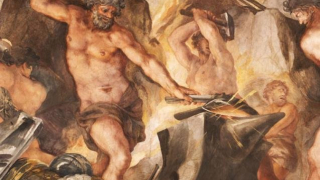Historical situations and the DNA of liberalism
Normativism and democracy, as social processes, will inevitably have their points of lesser and greater development, as the State responds better to the wishes of the People as a whole, despite clearly existing factors that divide humanity and which are related to social order, religions, spirituality, sex, age, etc.
Some systems are often instituted by coalitions in which even minority groups, whose strength is still unknown, want to be heard, and added to that, the desire to legislate without the necessary resources to promote new measures can have repercussions that disturb the economy, motivating the evasion of capital or reduction in investments.
Delegative democracy, which should actually be called delegative demagogy, "is based on the premise that whoever wins an election is thereby entitled to govern as he or she sees fit, constrained only by the hard facts of existing power relations and a constitutionally limited term of office." According to O'Donnell, the person who is head of government "is taken to be the embodiment of the Nation, the main custodian and definer of its interests. The policies of his government bear no resemblance to the promises of his campaign."
Therefore, another characteristic of delegative demagogy is particularism and clientelism, which seeks to benefit certain groups in particular, in addition to the fact that certain economic groups and Social organizations exercise power over political delegates. In addition, political delegates partake into forms of nepotism, and create political plans whose purpose is based on gaining popular support at a given moment, and not on the efficiency and sustainability of the plan itself.
Thus, the creation of irresponsible and wasteful governments is done, and the inevitable result is unstable systems, with sharp political and economic crises that sometimes end up in scandal or the fall of the government.
Democracy is a social process that, as it develops, is adjoin to change in the form and action of modern states. There did not exist in the past, neither did exist in the present, nor will exist in the future an absolutely democratic political regime, since a perfect response to the authentic will of the People is not possible, in the same way that a perfect response to the manifested will of that people is also not possible.
It is extremely important not to dissociate democracy from a perspective of dominant and dominated groups. In the Roman Republic, decisions kept large sectors of the population in a situation of exclusion. Democracy throughout history was a democracy only for male slavers or dominant elites.
The so-called democracies of today are the result of bourgeois revolutions that overthrow the feudal order, where a fundamental change in the history of humanity occurs, being that unlike other modes of production such as slavery and feudalism, it is no longer necessary for the property owners to have themselves the legitimated monopoly of violence by their own means, that’s to say direct political power as an indispensable requisite to take control of the economic surplus resulting from the exploitation of subordinate sectors of society.
A more just and efficient system could never rise above a society where that change has not been achieved, as for example in feudal society, where the feudal lords and the monarchy maintained economic exploitation as something completely dependent on their ability, specifically to exercise direct political power, having to unleash violence and war. A more just and efficient system
would be inadmissible in a situation like the previous one, in a framework of violent struggles for direct political power, which would grant the possibility of appropriating as much economic surplus as possible.
When the bourgeois market institution arose, where it is no longer necessary for the owners of the means of production to exercise direct political power, that’s to say having a legitimate monopoly of violence by their own means, in addition to the fact that the capitalists are more numerous than the ever small group of landowners and nobles of feudalism, and representation mechanisms were necessary to distribute power among the numerous capitalists, the first semi-polyarchical forms of government in the West emerge.
The representative systems of liberalism are therefore complex political systems in that they live on pluralities, competences and antagonisms, trying in the midst of all that to maintain a certain unity of the community, which is usually fragile. In order to emerge, plurality needs factors such as the emergence of a developed market and property, a higher income and consumption capacity of certain sectors of the People, and the fact that the monopoly of violence is more clearly defined than in feudalism, in addition to the necessity of transparent institutions capable of rendering accounts.
For Robert Dahl, the trajectory in which a demo-liberal system is born and evolves is important to the extent that civic rights and political rights do not always follow the same sequential order, sometimes there are political rights first, and then civic rights, and sometimes civic rights emerge first and only then the political ones arrive.
In the first case, the trajectory is from closed hegemonic governments, to competing, inclusive hegemonies, and in the second case, the result is competitive oligarchical governments, as in the case of England in the 19th century, where an oligarchy monopolized political power while competing with itself.
It has been seen that the second option is the one that has created more stable cases, by providing a political culture and economic bases that give better shelter to a more stable political life. However, this path is no longer possible for most of the current countries, since it derives from a context where the monarchical and bourgeois power faced each other for taking political control of the State. In the current capitalist states, even in the most open ones, the social process of democracy finds serious limitations.
The current demo-liberal systems are essentially demagogic systems because they are based on the manifested wishes of the People, which are exploited and led by oligarchies that act in a selfish and irresponsible way. A system can be democratic if the leaders have the capacity of answering to the concerns of a majority of the population as to favour them in many aspects.
In the first liberal regimes, democratic decisions occurred exclusively to benefit the bourgeoisie and landlords, and the great majority lacked political and social rights.
Not all states embarked on their transition in the same way, and for example some states were forced by the pressure of others to adopt more pluralistic forms for their political systems. On the part of the capitalists, they no longer see their economic dominance mortally stricken by the People's access to polyarchy, due to the collapse in popularity of collectivist ideologies and the collapse of the former communist bloc.
When voting, the option of majorities is an option that does not intend to radically change the existing political and economic structures, in the sense of a step towards authoritarian political forms or towards communist economic forms, as they feel distrust towards alternatives which they see as something that may well not bring the material well-being which workers seek.
In addition, the threat of economic regulation and control by states and unions, detrimental to the goals of capitalist companies, is more tenuous in times of globalization, economic liberalization, and productive restructuring on the raise.
Added to that, political elites find the cost of repression increasingly high, and if they do not repress it is seen as a sign of weakness, while if they repress, they lose their remaining legitimacy.
For the above reasons, the dominant sectors of society are no longer reluctant to apply truly polyarchical forms of government, while they see polyarchy as a way to achieve greater stability in the wake of political crisis, stability which generates better investment and business conditions for the dominant sectors.
In order to understand how current political systems develop, it is essential to fully understand the processes linked to the functioning of the capitalist machine, in all its dimensions. Capitalism is a system linked to current political systems, in a way that its roots appear to be holding not only institutions, but the psyche of people who must get used to a society based on the knowledge of money and on compulsive consumption.
Usually, explaining how to build projects of social restructuring within the limits of a capitalist system is not an easy task, since the very political and cultural institutions inertially push the exaltation of certain economic formulas. Not by chance, capitalism has survived so many ordeals throughout history, and it is because of its great adaptability that this system is so interesting.
But in part, the survival of this system not only lies in its capacity for adaptation, it also lies in the fact that alternatives formulated by people satisfied their manifested will, but not the true will that underlies them all.














